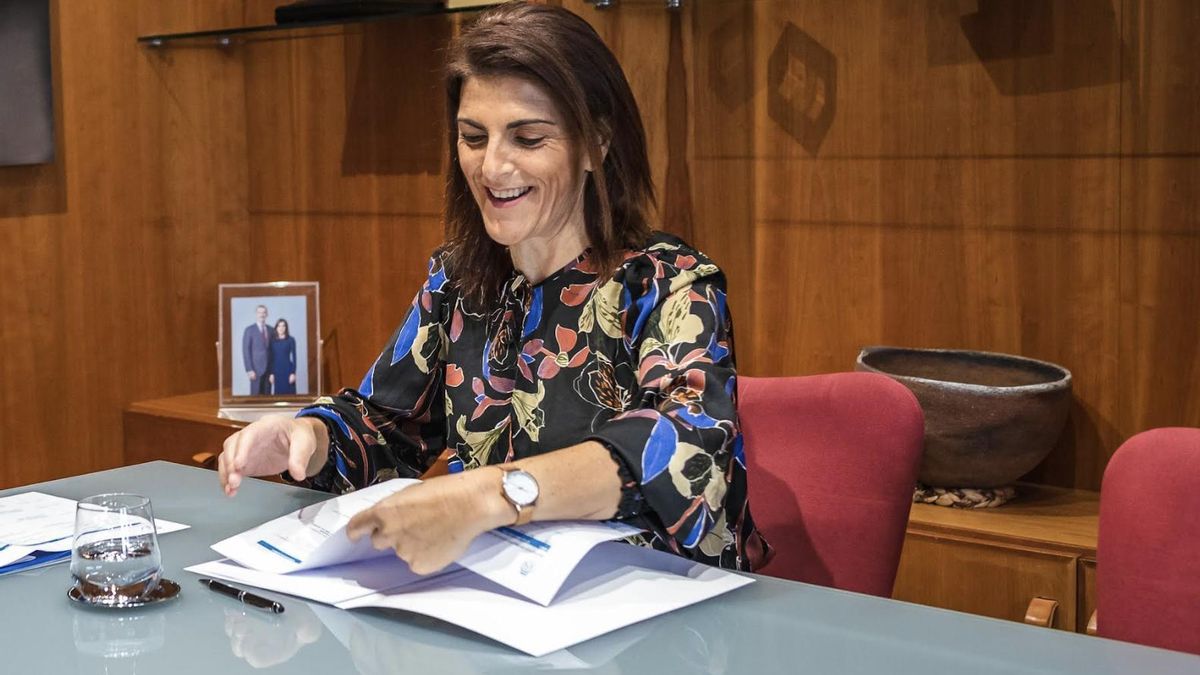
The instability in the Guía de Isora government, one of the most significant and populated municipalities in southern Tenerife, although lacking the tourist and economic importance of Adeje and Arona, turned into a collapse on Wednesday afternoon and evening. The announcement, reported by the digital Sol del Sur, that another councillor from the government was joining the non-attached councillors has led to the CC and PP government losing its ability to approve initiatives due to the mayor’s casting vote, the nationalist Ana Dorta. This follows a representative from her party, David Reyes, taking the same step in 2024 due to disagreements with her. However, although Reyes already denounced the mayor’s methods, this time there is a qualitative leap. As will be explained this Thursday in a press conference in La Laguna, Acerina González Prieto (PP), until now the councillor for Social Services and Equality, is stepping down from her functions and will remain in the council, not only due to deep differences with Dorta and the rest of the councillors, mainly from her own party, but also accusing them of workplace harassment.
According to what Canarias Ahora has been able to uncover, the councillor is also making this move due to her understanding that the PP has no interest in Social Services and is more focused on parties and its concept of culture. Additionally, she has felt continually pressured and belittled for having her own criteria and for trying to develop her management as she believed it should be done, without the support she expected from her colleagues and the mayor, according to the sources consulted.
Until now, since David Reyes joined the non-attached councillors, the Guía de Isora government was facing day-to-day tasks and council meetings with ten councillors, the same as the socialist opposition, which was just over 200 votes short of repeating the absolute majority it has held since 1995, under the leadership of Pedro Martín. However, his candidacy for the Cabildo and, above all, the motion of censure against Carlos Alonso in July 2019, which succeeded alongside Cs and Sí Podemos Tenerife, made him the island president and left the mayoralty to his number two, Josefa Mesa, who narrowly missed repeating the absolute majority. During this time, the CC mayor, whose local leadership was renewed last week with minimal opposition, has passed motions using her casting vote, with David Reyes and the PSOE, although very critical, not wanting to do much damage or destabilise the municipal day-to-day further.
However, the situation has now changed, and the government is facing a significant uphill battle as it now faces 12 councillors and the possibility of a censure motion is more than likely. Nevertheless, the PSOE prefers first to demand explanations, as it considers what the departing PP councillor is alleging to be very serious. Although the group led by Josefa Mesa is aware that if the situation were reversed, CC and PP would have already done everything possible to overturn the government (as happened in Puerto de la Cruz against the socialists, as well as in Granadilla with a censure alongside Vox or in Arona, where they also align with the far-right after the dismissal of councillors from Más Por Arona), the socialists in Guía de Isora do not want to rush anything, nor do they feel anxious to regain power. Moreover, although it was by a small margin, they consider that the people sent them to the opposition and that the CC-PP pact deserved a chance and constructive opposition for a while, although they have not stopped criticising the loss of various subsidies and a management they sum up in one word: “Disaster”.
Nevertheless, the PSOE will not approach the two non-attached councillors until they have received explanations from the government and how stability of management will be ensured during the two remaining years of governance. They do blame the mayor for this nearly unsustainable situation and do not rule out, of course, trying for a censure motion in the interest of the municipality and in response to the growing requests from residents in the streets, even those regretting changing their vote “to scare” the socialists in the last elections.
Thus, Guía de Isora is now bracing itself for two years of absolute uncertainty and instability in governance, unless an alternative or concentration pact is formed for the locality.















